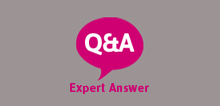Employment scams and fraud jobs
If a job opportunity comes your way that sounds too good to be true, it probably is. Read this to get clued up on fraudulent job offers and common scams.

Watch out for online employment scams.
With almost 2.5 million unemployed people in the UK, finding a job is tough. Unfortunately, it’s not just the out-of-work who are on the hunt for opportunities – fraudsters are cashing in on desperate jobseekers with dodgy offers and bogus jobs. So how do you work out what’s genuine and what’s not?
Dodgy job offers
Many scammers post fake job advertisements online to lure jobseekers. A common scam goes something like this: a company lists a job and you apply. They contact you and say you’re perfect for the job but your CV isn’t quite up to scratch. They offer to rewrite it for you so you’re selected for an interview, at a cost of £100.
Don’t bite at this, however tempting, says David Chernick, a fraud specialist who was one of the founding members of SAFER, an organisation set up to reduce fraud in the recruitment industry. “There was no job in the first place,” says Chernick. “If somebody has lured you in by advertising a job then offered you an alternative service, you should say no.”
Other advertisers charge fees for registration, administration or job directories, often promising work, such as mystery shopping, work-from-home opportunities or cruise ship work. Research carefully before handing over any cash – many of these companies are simply making money from selling to jobseekers. Employment agencies are also not allowed to charge jobseekers for finding them work. Contact the Pay and Work Rights Helpline for advice if you’ve been asked for cash.
Some unscrupulous types offer jobs to get your personal details so they can clean out your savings. Be wary of anyone who asks for your bank account, passport or national insurance number at an early stage – these are usually not required until you have a firm job offer.
Avoid model agency scams
The most common scams targeting young people are related to the entertainment industry. Sarazann Bhangal, 23, was ‘scouted’ on Oxford Street by a supposed agent who promised her modelling work if she came in for a portfolio shoot.
“I’d heard about the companies that were just cons trying to sell you expensive photo packages. I told them on the phone I didn’t want to pay anything and they said ‘oh no, it’s fine, it won’t cost you a thing’.”
This wasn’t the case once the shoot was over. “They took me into a room and wouldn’t let my friend come with me. Then they showed me the photos and produced a price list – it was £800 for the 30 photos.”
Similarly, many agencies charge registration fees to extras and actors. It’s standard practice for an agent to charge a fee, but it’s hard to work out who’s legit and who isn’t. Alba Model Information is a good place to start.
Misleading job adverts
Other companies bend the truth to lure people into jobs that don’t meet minimum wage requirements. Paul Bygrave, 21, responded to an ad for a ‘marketing management graduate scheme’, which promised a salary of £25-50K per annum. After attending an initial interview, he leapt at the chance to attend an assessment day in their office. When he arrived, however, he was taken out with a door-to-door salesman.
“At no point was I warned of this or given any hint this was what the company did. Instead, they use their marketing buzz to bamboozle desperate graduates and then attempt to convince you to take up a commission-only job,” says Paul.
“You get £25 per sale. I was shadowing a guy who made one sale in a day and it took him 10 hours; others came back empty handed.”
Beat the scammers
Treat any company that approaches you the same way you would a stranger on the street – check them out thoroughly before agreeing to anything. Ask questions and do an online search of the company name and see what comes up. You may find reviews or helpful information from other jobseekers. Any firm without a landline or with only a PO Box address should set off alarm bells. Bad spelling or grammar on websites or in emails should also serve as a warning sign.
Picture of criminal on laptop by Shutterstock.
Next Steps
- Chat about this subject on our Discussion Boards.
By Joanne Christie
Updated on 29-Sep-2015
No featured article









